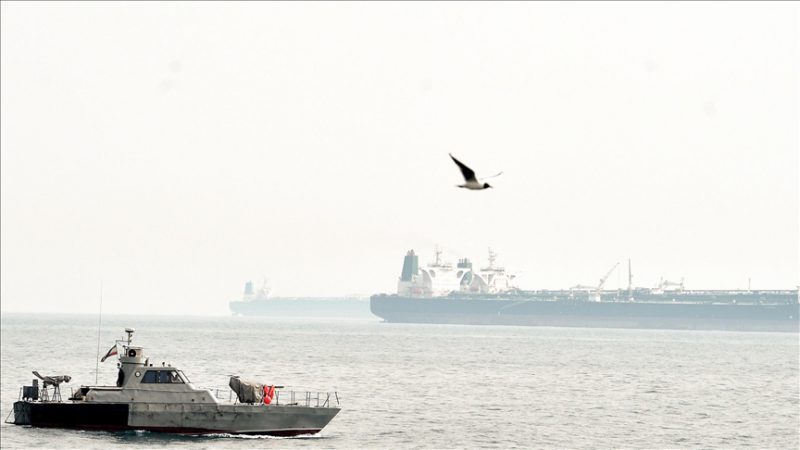A Hormuz blockade could trigger the worst global trade disruption in decades, and right now, Greece’s shipping minister is sounding the alarm bells. Tensions between Iran and Israel have escalated to such dangerous levels that officials are openly discussing devastating shipping industry impact and oil supply volatility that would shake the entire world economy.
Also Read: BRICS: US Bank Exec Warns Exporters Are Rejecting the US Dollar
Understanding Hormuz Blockade Risks: Global Trade, Oil Supply, Shipping & Geopolitical Volatility
Minister Issues Stark Hormuz Blockade Warning About Economic Catastrophe


Vassilis Kikilias has made a pretty serious appeal to the dangers of a Hormuz blockade in a recent interview to SKAI TV and to be frank his cue is not something one should ignore since he is a really cogent person and well versed with the terms of world economics. The Greek shipping minister articulated the impact such a scenario would cause to the global trade, because what was going to happen had never been seen before and it would impact everyone.
Kikilias was clear about the fact that:
“If the Strait of Hormuz is closed – which is the worst-case scenario – it will affect the entire global economy, not just shipping.”
The warning comes as hostilities erupted when Israel launched airstrikes across Iran, targeting military and nuclear facilities. Tehran’s retaliatory strikes have been swift and deadly, resulting in significant casualties – at least 25 people killed in Israel and a staggering 639 fatalities reported in Iran, with more than 1.300 wounded.
Shipping Routes Face Critical Threat From Potential Blockade
The consequences of a Hormuz blockade to the shipping industry would truly be disastrous and the figures are downright horrifying. Registering at almost 90 percent, worldwide trade relies on passing through the maritime lanes and therefore in the event of their closure, cargo vessels of hundreds of thousands of tons capacity would have to go round the whole of Africa and back to Europe and the United States alone.
Such an alternative route would cause critical disruption to decades-long optimized supply chains and transportation would become exponentially expensive. The disruption would touch on everything including manufactured goods to agricultural products and they would take days to come as opposed to recently when it only took a matter of days.
Kikilias explained:
“Nearly 90% of global trade depends on maritime routes and rerouting vessels around Africa to reach key destinations in Europe and the US would severely upset global supply chains.”
Oil Markets Already Reacting To Hormuz Blockade Fears
Global havoc has already started wreaking havoc on the global markets as pertaining to oil supply volatility and we are only witnessing the early stages of it all. Kikilias pointed to the direct effects on energy prices, emphasising that the current geopolitical tensions are currently creating levels of uncertainty on the market never seen before.
The minister observed:
“Oil prices already rose by 7% – 10% in recent days, owing to the armed tension between Iran and Israel.”
The Strait of Hormuz handles approximately 20% of global oil transit, which means that any Hormuz blockade would force oil tankers to navigate around Africa’s Cape of Good Hope. This would add thousands of miles to their journeys and drive up energy costs worldwide at a time when consumers are already struggling with inflation.
The minister described the current situation as highly unstable, emphasizing the volatile nature of today’s geopolitical climate and middle east geopolitical risks.
Kikilias stated:
“[The] current geopolitical landscape [is] very volatile.”
Economic Ripple Effects From Hormuz Blockade Threats
Insurance premiums on vessels involved in operations within the same region have soared up appreciably as companies have been in a frenzy to quantify the growth of dangers subjected to numerous tactical appraisal applications. This additional cost does not go away, rather, it will trickle down to the end through high prices on imports, be it electronics or clothes in any industry of high retailing.
Financial markets have priced structures to reflect on these risks and what has been evidenced in shipping stocks is that volatility is increasing as players make attempts to understand how the disruptions might prove to extend over a longer period. The situation explains why regional differences regarding such key infrastructure as the Strait of Hormuz can conveniently grow into global economic problems, which affect Middle East geopolitical risk and capitalism in the international trade through other major endeavour markets.
Also Read: Oil Could Hit $130 on Iran Strait of Hormuz Threat
The worst scenario that we could have experienced is a Hormuz blockade with all the immense impacts that it would have on the shipping industry and the sheer volatility that it could cause in the oil supply along with the maximum level of impact that it would cause on the container trade industry that would entirely change the way in which the world of business trades in some very critical business interests indeed.





